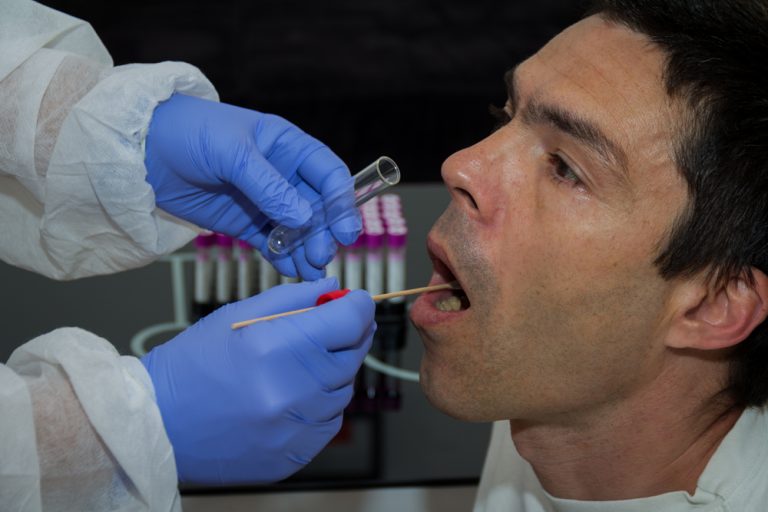

AUSTIN – The Texas Department of Public Safety (DPS) today announced that House Bill (HB) 1399 assisted in the closure of more than 250 unsolved criminal investigations during its first year of implementation. The law authorizes the collection of DNA samples from individuals charged with 24 qualifying felonies and compares the offender samples to existing crime scene DNA profiles in the nationwide Combined DNA Index System (CODIS) database.
The law, also known as the Krystal Jean Baker Act, went into effect on Sept. 1, 2019.
“The hard work of our crime lab employees and law enforcement officials is allowing us to make great strides in solving crimes faster, and in some cases, crimes that otherwise may never have been solved,” said DPS Director Steven McCraw. “Only a year after its passage, this law has become a valuable tool in getting criminals off our streets and bringing justice for victims and their families. We expect additional success as this process becomes an integral and vital part of the criminal justice landscape.”
Under HB 1399, law enforcement is not required to wait for a conviction to gather a DNA sample. Upon a person’s arrest for a qualifying felony, a cheek swab is collected and sent to the DPS lab to be entered into CODIS. The statute was passed during the 86th Texas Legislative Session and signed into law by Gov. Greg Abbott.
“The purpose of this legislation was to help law enforcement identify perpetrators in unsolved cases,” said State Rep. Reggie Smith. “I am pleased to see such success in the first year since the legislation was implemented. I believe this legislation will continue to bring perpetrators of violent crimes to justice and provide for a safer Texas.”
The law is named for Krystal Jean Baker, a 13-year-old Texas City girl who was abducted, sexually assaulted, and killed in 1996. DNA evidence was collected at the time of her death, but no arrests were made. In 2010, the perpetrator of Baker’s murder was arrested on an unrelated charge in Louisiana, and DNA taken at the time of his arrest linked him to Baker’s case. In 2012, he pleaded guilty to her murder in Chambers County.
While many qualifying offenders arrested since HB 1399 went into effect were already in the CODIS database for other crimes, there have been 16,215 DNA samples from new offenders that were collected, analyzed and uploaded into the database for potential matches between Sept. 1, 2019, and Aug. 31, 2020.
The vast majority of HB 1399 offender-to-case matches (236) were from unsolved crimes in Texas, with the remainder related to criminal activity in South Carolina, New York, Arkansas, Idaho, Georgia, Oklahoma, and Tennessee.
|
Top Five Qualifying Offenses at |
|
Top Five Investigations Aided |
||
|
Burglary |
47 |
|
Sexual Assault |
93 |
|
Assault |
40 |
|
Burglary |
38 |
|
Aggravated Assault |
31 |
|
Robbery |
20 |
|
Aggravated Robbery |
31 |
|
Murder |
10 |
|
Sexual Assault |
21 |
|
Sexual Assault of a Child |
9 |
Most of the investigations aided by HB 1399 (78%) involved crimes that occurred in the same county or a bordering county relative to where the offender was arrested, and 85% solved a different criminal offense than the qualifying crime they were arrested for.
The counties with the highest number of offender DNA samples that resulted in database matches in the first year were Harris (78), Dallas (47), Tarrant (20), Travis (18), and Fort Bend (11), while the top five counties where new case matches took place were Harris, Dallas, Tarrant, Travis and Montgomery counties.
The San Marcos City Council received a presentation on the Sidewalk Maintenance and Gap Infill…
The San Marcos River Rollers have skated through obstacles after taking a two-year break during…
San Marcos Corridor News has been reporting on the incredible communities in the Hays County…
Visitors won't be able to swim in the crystal clear waters of the Jacobs Well Natural…
Looking to adopt or foster animals from the local shelter? Here are the San Marcos…
The Lone Star State leads the nation in labor-related accidents and especially workplace deaths and…
This website uses cookies.